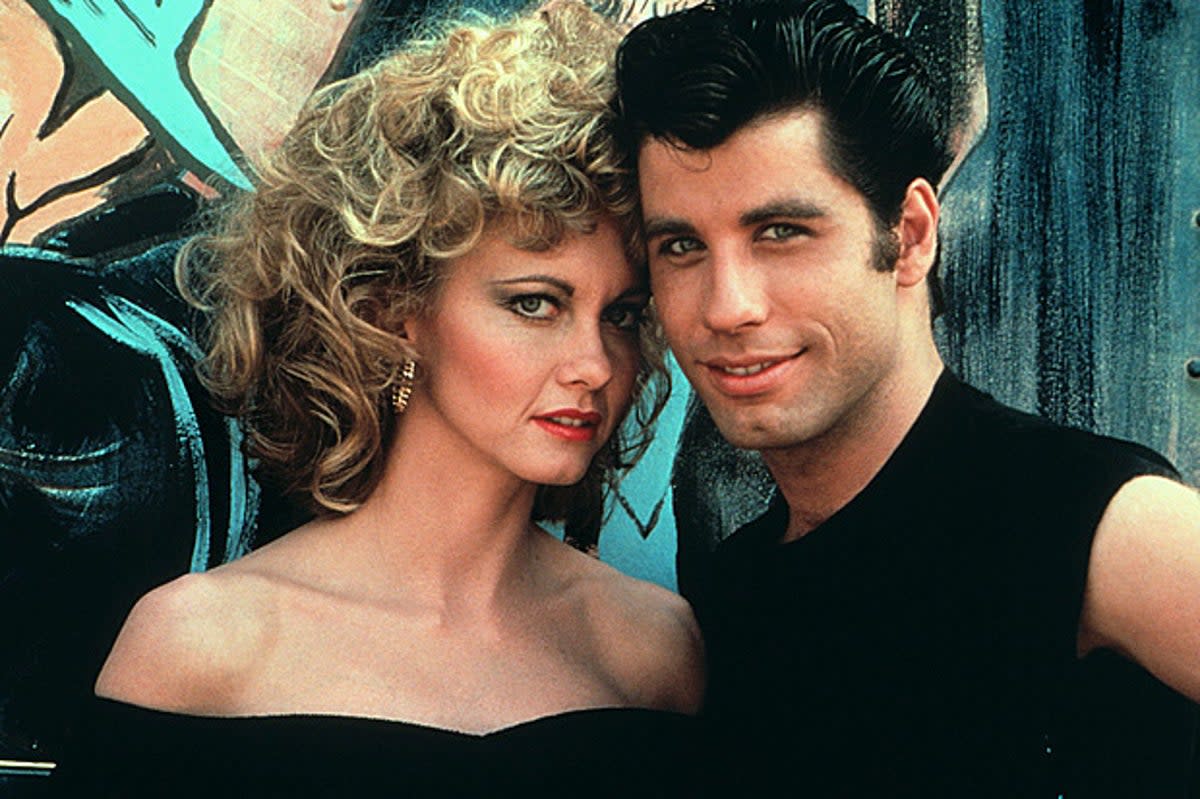Olivia Newton-John in Grease: Why we’re still hopelessly devoted to Sandy

Olivia Newton-John died yesterday and thousands of fans poured online to share their heartfelt thoughts about the passing of the Grease star.
“Noooooo not Sandy! This is a big loss. Olivia Newton John was a QUEEN! Grease was the first movie musical I ever saw. She was everything. Rest in Power!” Tweeted one.
“This is really sad. I was 8 years old when I saw Grease in the cinema and remember it like it was yesterday. She was mesmerising. RIP Sandy,” Tweeted another fan (Scottish First Minister Nicola Sturgeon).
One pattern is emerging across the web: despite the fact that British-born Newton-John went on to star in 12 films after Grease, went on 17 headlining musical tours, had a two-year residency show in Las Vegas and released 26 studio albums, she is still best remembered as Sandy Olsson, the leading role opposite John Travolta’s Danny Zuko in the 1978 musical.
“Grease marked my life as well as many others so I would like to leave here all my solidarity with Olivia Newton-John’s family and friends. Sandy Olsson was an amazing character and Olivia an even more amazing person,” Tweeted a fan, which was typical of the tributes that were being shared last night.
In loving memory of our Sandy, Olivia Newton-John.❤️ pic.twitter.com/QGOiCrQSM3
— Grease (@GoGrease) August 8, 2022
But the singer was already a star in her own right before she took on the role of Sandy - three out of four of her Grammys, for example, were won before taking on the 1978 film. It begs the question then, of why Newton-John’s Sandy made such an impact, and why the character still has such a hold on pop culture.
The answer is, unquestionably, because of Newton-John: her charisma on screen as both the conservative and the bolder versions of Sandy.
After all, the character isn’t a typical heroine in a lot of ways. Sandy is a well-put-together young woman who meets her summer crush again at high school. Now that the setting has changed, things aren’t the same and the ensuing storyline follows the relationship between the two teens.
Sandy decides to change things up in order to bag her man. She chucks the headband and the long dress, wears a tight black catsuit and eyeliner, smokes and has curly, sexy hair. She now fits in with bad boy Danny, played by John Travolta, and they live happily ever after (Danny dons a preppier jacket, which symbolises he’s prepared to change for her too, but the tranformation isn’t equal). It’s not necessarily an arc that you would encourage your daughters, sisters and friends to follow.
Sandy’s storyline reflects the wider themes of the film, which is morally ambiguous to say the least. Betty Rizzo, for instance, who is played by Stockard Channing in the film, is made to feel “trashy” after sleeping with numerous guys: “There are worse things I could do / Than go with a boy or two,” she sings at one point. There is a pregnancy scare, too, and Kenickie only gets back together with her after Rizzo finds out she isn’t expecting.
And this was after the film had been adapted to be more suitable for a wider audience. The original 1971 musical reportedly had the T-birds - the boys’ gang - wielding knives, and though some song lyrics were toned down, they’re still full of sexual innuendo.
She was the one we all wanted. #OliviaNewtonJohn #Sandy #Grease pic.twitter.com/ycBm2l7vLm
— George Hahn (@georgehahn) August 8, 2022
So how and why does Grease’s appeal endure? It’s partly the songs, yes. Incredibly catchy, joyous, and also deeply engraved in the minds of everyone who grew up watching the musical. There’s the fun outfits - fabulous gelled quiffs, tight t-shirts, flared trousers, jeans, mini-shorts - and then the dancing too. Who doesn’t love the Hand Jive?
But mostly, it’s Travolta and Newton-John. Travolta, with his Obsidian-black lacquered hair, bulging muscles and kind eyes, and Newton-John - innocent, kind and eventually fearless. The film was the second high-grossing film of 1978 (just $2 million short of Superman’s winning figure), and the soundtrack sat at the top of the album charts for 12 non-consecutive weeks, speaking volumes about the duo’s on-screen charm.
But that’s not all. Newton-John’s Sandy spoke volumes because she played the fallible teen so well.
Women are often written one-dimensionally, and this was especially the case in the late Seventies and early Eighties. The poster for 1981’s For Your Eyes Only, for example, has James Bond shooting his gun through the bare legs of a swimsuit-clad woman wearing heels. You can’t see the top half of her body because the poster cuts off just above her pert bum. Sandy may succumb to peer pressure but she can’t be criticised for being uncomplicated. Her tricky teen friends have also become a real inspiration for some.
“As Sandy in Grease, Olivia Newton-John taught me that no matter what your parents say or how conservatively you were raised, you can still become the sexy power slut of your dreams and I’ll be forever thankful for her for that,” Tweeted one fan.
But the provocation doesn’t stop there, as modern audiences ponder over Sandy and the wider plot: “In today’s climate, rewatching the classics with an eye on gender politics can be an unsettling experience, unseating old favourites, and Grease is at the heart of a raging debate as to whether the film is sexist, or feminist, with a surprising amount of fervour in each corner,” said The Guardian’s Rebecca Nicholson in 2018.

Dr Barbara Jane Brickman, who published the book Grease: Gender, Nostalgia and Youth Consumption in the Blockbuster Era about the film, explained to The Guardian, “The film is, through much of its action, a girl’s film – exploring girls’ ‘bedroom culture’ and fandom, wrestling with and critiquing that sexual double standard impinging itself on Rizzo and Sandy, and focusing on female teen friendships, more so, one might argue, than many, many teen films then or since.”
But not everyone holds this opinion. Despite Grease’s lasting power (it’s also currently running on the West End) two schools in Perth cancelled their Grease performances in 2021 on the grounds that students had “raised concerns whether the musical was appropriate in modern times.” Then, in December there was some backlash after the BBC showed the film on its channels over Christmas.
At the time, it was reported in USA Today that Newton-John kicked back saying, “I think in this particular instance, it’s kind of silly because the movie was made in the seventies about the fifties.”
She added: “It was a stage play, it’s a musical, it’s fun. I think everyone’s taking everything so seriously. I think we need to relax a little bit and just enjoy things for what they are. And I didn’t see it like that at all, I think it’s just a fun movie that entertains people. That’s all.”
Yesterday’s global reaction to the sad news that Newton-John had died seems to confirm the singer’s convictions. Most people agreed that Sandy is a legendary character, and that no one was better suited to play her than Newton-John.
The sweetest tribute of all came from Grease co-star Travolta, who said on Instagram, “My dearest Olivia, you made all of our lives so much better. Your impact was incredible. I love you so much. We will see you down the road and we will all be together again. Yours from the first moment I saw you and forever! Your Danny, your John!”
As well as her long acting and singer careers, Newton-John became well-known for advocating for cancer research. The singer was first diagnosed with the disease in 1992 when she was 44 years old. She was also an activist for humanitarian issues and animal rights. She died aged 73 on Monday.

 Yahoo Movies
Yahoo Movies 
